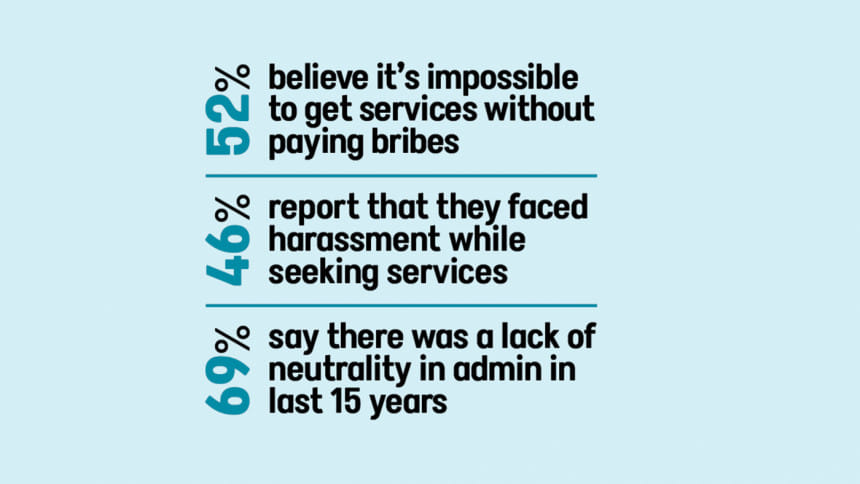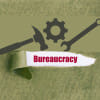66% people think civil servants behave like rulers

An overwhelming 80 percent of the people think the administration is not friendly to the general public, finds a survey by the Public Administration Reform Commission.
Besides, 66 percent of people feel that civil servants behave like they are the rulers, according to the survey of over 1 lakh people.
Thirty-one percent of the respondents say they have experienced discourteous behaviours from government employees, 42 percent believe receiving services is impossible without paying bribes, and 46 percent report facing harassment while seeking services.
The reform commission led by Abdul Muyeed Chowdhury conducted the survey on 105,000 people online to gather opinions on various issues related to public administration reforms.
The survey questionnaire also featured a section for open comments.
The reform commission submitted its report with around 200 recommendations to Chief Adviser Prof Muhammad Yunus on Wednesday.
The full report of the commission along with other reports were uploaded on the Cabinet Division website on Saturday.
According to the commission's survey, 56 percent of the respondents consider political interference as the main obstacle to making public administration officials people friendly while 42 percent deem corruption as the main impediment.
Ninety-six percent believe the public administration lacks transparency and accountability, 84 percent feel reforms in the administration are necessary, and 69 percent say the administration lacked neutrality in the last 15 years.
Only 4 percent think raises and perks would lower corruption and bribery, 52 percent say the administration's main task is to ensure accountability, and 36 percent think the main reform priority should be to eliminate corruption.
The respondents were also asked about the effectiveness of union parishad, municipality, upazila parishad and zila parishad.
Around 68 percent say zila parishad is ineffective, 76 percent believe upazila parishad could serve citizens better if those are strengthened, 47 percent say union parishad and municipalities should be integrated into the administration.
BRIBERY
The reform commission conducted another survey on 5,233 citizens who took services from Tehsildar Office, Assistant Commissioner (Land) Office, Sub-Registry Office, Settlement Office, police precincts, Income Tax Office, Municipal/City Corporation Office, and service providers for electricity, gas, and water bills, as well as healthcare.
Half the respondents say it is not possible to receive services from police without paying bribes, 42 percent experienced bribery and corruption at the income tax office, and 10 percent faced harassment there, 43 percent had to pay bribe at Tehsildar Office, Assistant Commissioner (Land) Office, Sub-Registry Office and Settlement Office.
At municipalities and city corporations, 32 percent of the service seekers report facing misbehaviour and 28 percent had to pay bribes, said the survey.
At the offices providing electricity, water and gas, 42 percent were dissatisfied and 18 percent did not get water regularly.
Almost 100 percent of the respondents expressed dissatisfaction with health services with 46 percent terming it substandard.
WHAT SHOULD BE DONE
The reform commission reviewed the findings and analysed various documents and books on the public administration to identify the problems like corruption, political interference, inefficiency, bureaucratic attitudes, lack of transparency, poor accountability, limited public participation, and lack of proper coordination.
"The public administration needs to be restructured to be more people-oriented, accountable, efficient, and impartial, as well as effective," says the commission report.
Making an efficient administration would require training, capacity building, and development of strategic leadership.
The commission recommends that the goals of public administration should be to become people-oriented, transparent and accountable, enhancement of efficiency and capacity, impartial, proficiency in public services, and effective.

 For all latest news, follow The Daily Star's Google News channel.
For all latest news, follow The Daily Star's Google News channel. 





Comments